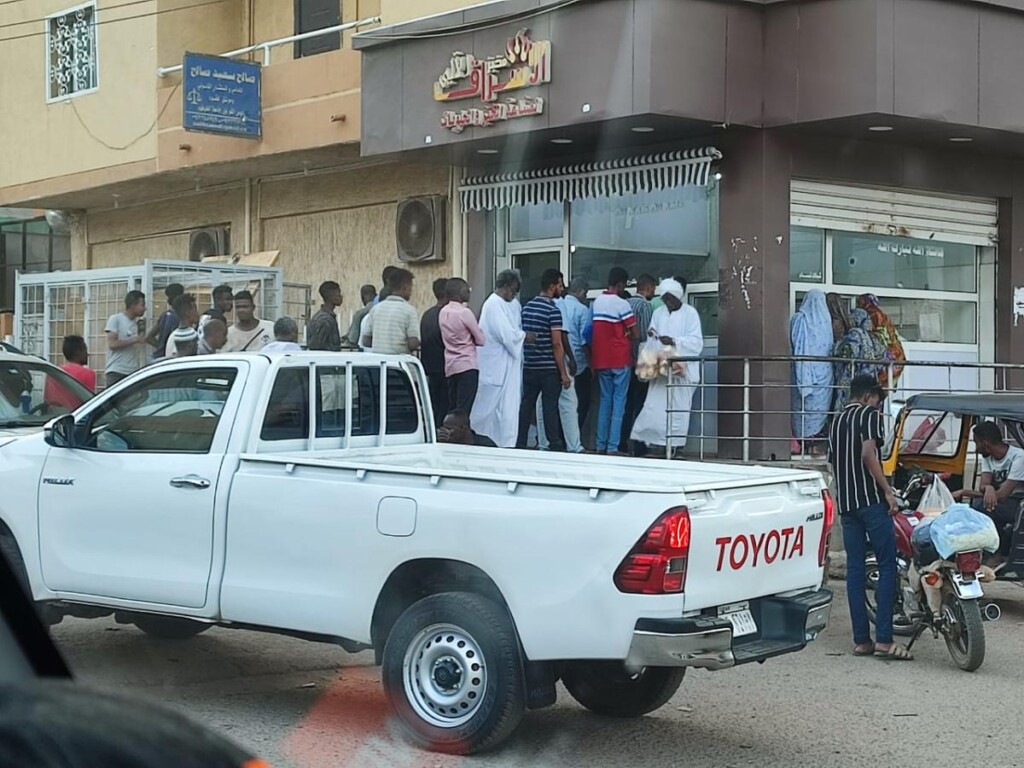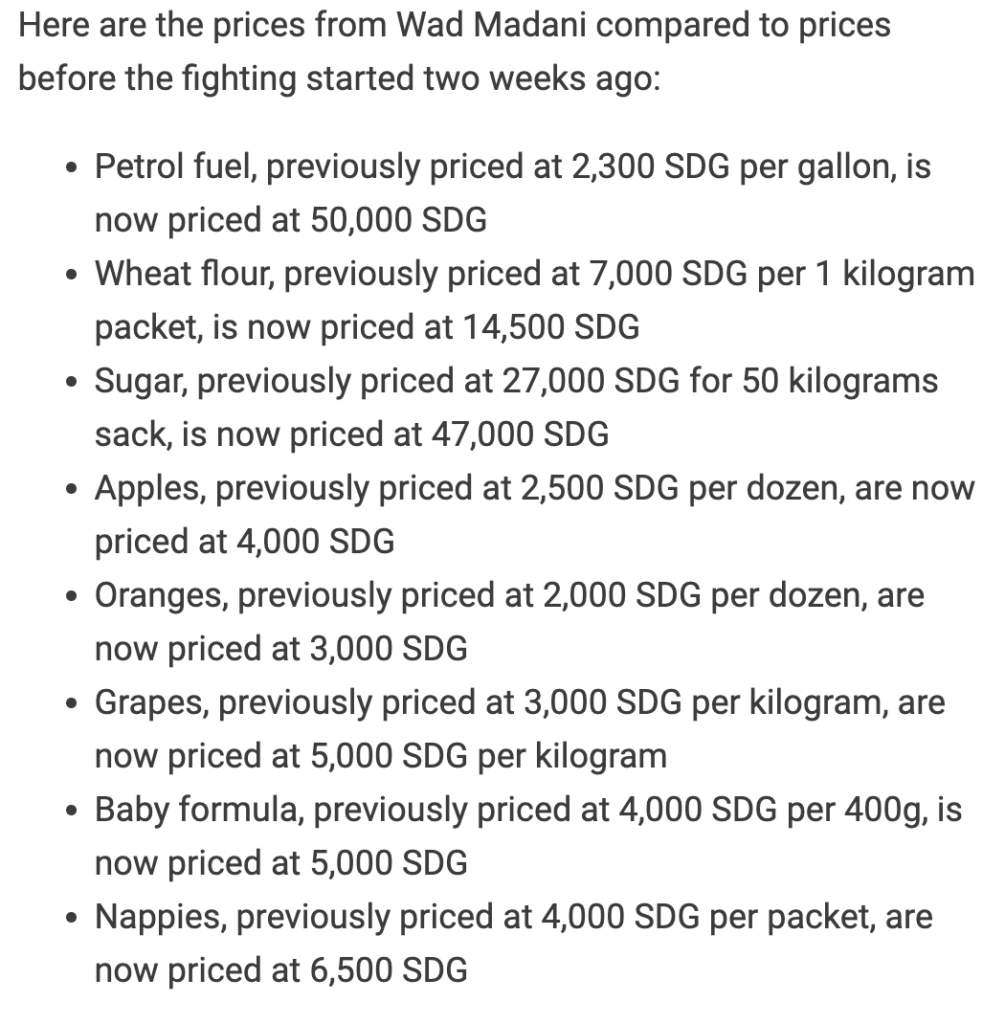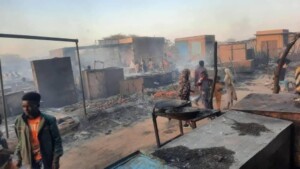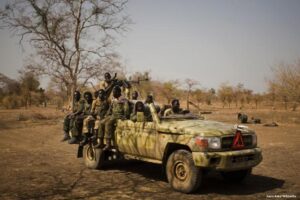Overcrowding and shortages in Port Sudan and Wad Madani

People queuing outside a bakery in Wad Madani this week (Photo: Ahmed Omer / NRC)
PORT SUDAN / WAD MADANI – May 2, 2023
Overcrowing, supply shortages, lacking medical infrastructure, and cash problems are leading to dire situations in cities that are receiving many newly displaced. The already harsh humanitarian situation is made even more difficult as most import and export routes in Sudan are currently closed.
The ongoing fighting has forced many hospitals, shops, pharmacies, and markets to close as they can not be safely operated. On top of these closures, blocked import routes are causing shortages and a rise in commodity prices at a time when most Sudanese are unable to work and earn their daily wages.
The Sudanese airspace will remain closed until May 13, with the exception of evacuation flights, the Khartoum International Airport announced.
The war between the Sudan Armed Forces (SAF) and the Rapid Support Forces (RSF) also put an end to ships coming into the ports of Port Sudan, Red Sea state, as the port movement was restricted to evacuation ships.
Journalist Osman Hashim told Radio Dabanga from Port Sudan that the port traffic stoppage will have a negative impact on the many workers who are dependent on daily wages for their income.
It will also have a negative impact on the entire Sudanese economy as international trade has essentially come to a halt.
There is a steady rise in the prices of commodities and there are long queues to buy petrol for electricity. The city is also experiencing liquidity problems due to the weak internet network of banks, Hashim said.
Overcrowding
The humanitarian conditions experienced by Sudanese and foreigners stranded in Port Sudan awaiting evacuation are harsh and Hashim reported that there are large numbers of people with foreign nationalities whose evacuation has not begun due to the absence of embassies and consulates.
“The city is witnessing unprecedented overcrowding,” Hashim said.
‘The city is witnessing unprecedented overcrowding’ – Osman Hashim
Medical doctor Mohamed Kamal told Radio Dabanga from the Red Sea state capital that the Osman Digna Hospital has prepared and made changes to accommodate for the large increase in people coming from Khartoum.
He explained that the emergency and accident departments are equipped to receive all patients’ cases within 24 hours and there is enough qualified staff available to deal with the hospital.
All hospitals in Khartoum are currently out of service, doctors reported. This means that most of those fleeing Khartoum have not been able to get any medical care. Some make the long journey to safer places whilst suffering gunshot wounds.
The United Nations High Commissioner for Refugees (UNHCR) estimated yesterday that more than 800,000 people could flee Sudan as a result of the violence.
Wad Madani
The capital of El Gezira, Wad Madani, also faced a large influx of people fleeing Khartoum. So far, Wad Madani has not witnessed major fighting and it is one of the few places in Sudan where some international humanitarian organisations are present, albeit limited.
Those who sought refuge in Wad Madani live in poor humanitarian conditions. The city is running out of essential supplies, and so are most stops on the route.
The Norwegian Refugee Council (NRC) published footage on Sunday that showed long queues for petral and abandoned cars. It said fuel was running out in Wad Madani and many were forced to abandon their cars as they tried to escape fighting.
Petrol is now roughly SDG50,000 compared to SDG2,300 before the violence erupted on April 15.
The NRC posted a list of prices of commodities in Wad Madani on Sunday, compared to their price before the outbreak of the violence.

Due to the lack of international humanitarian support, many Sudanese have set up initiatives to help their fellow citizens, both within Sudan and from abroad.
The Mohamed Abdallah Mousa School initiative in Wad Madani reported that, together with other civil society groups, it has sheltered a large number of displaced people coming from Khartoum, most of whom are women and children. They have been transferred to 17 schools in the city and to a number of villages in the area.
Public health specialist Aseel Jereis, who made the treacherous journey from Khartoum to Wad Madani with her aunt, spoke to Al Jazeera News about the humanitarian situation in the city and the challenges that those who flee are facing.
On social media, she notifies others how they could flee and where there are checkpoints etc.
She is not the only one. “It is the diaspora, especially in the US and the UK, through social media, who tell us that this road is safe, or these nurses can treat you here,” she told Al Jazeera over the phone.
The medical situation is particularly dire. Many people arrive in Wad Madani from Khartoum with untreated wounds or other health problems that they could not get treatment for in Khartoum.
She told the news outlet that she helped evacuate a 25-year-old friend who had been shot in Khartoum and could not get medical assistance as all the hospitals were closed.
In Wad Madani, he could finally receive surgery but the medical infrastructure in the city is overwhelmed and there is a “serious shortage of life-saving medicines,” Jereis said.
‘If you have not been shot, you will die of a chronic disease’
– Aseen Jereis to Al Jazeera
“If you have not been shot, you will die of a chronic disease.” Over 21,000 people are in need of dialysis, she said, and many pregnant women or cancer patients are unable to receive treatment.
Radio Dabanga reported yesterday that the Sudan Doctors’ Trade Union (SDTU) reported that “the situation at renal dialysis centres is seriously dangerous”. Roughly 12,000 Sudanese patients are currently exposed to the risk of death from renal failure complications as most centres have run out of supplies. These centres usually handled 140,000 dialysis sessions per month.
Doctors have also been specifically targeted and detained by RSF soldiers in Khartoum, who use them to treat injured troops, Jereis told Al Jazeera.











 and then
and then